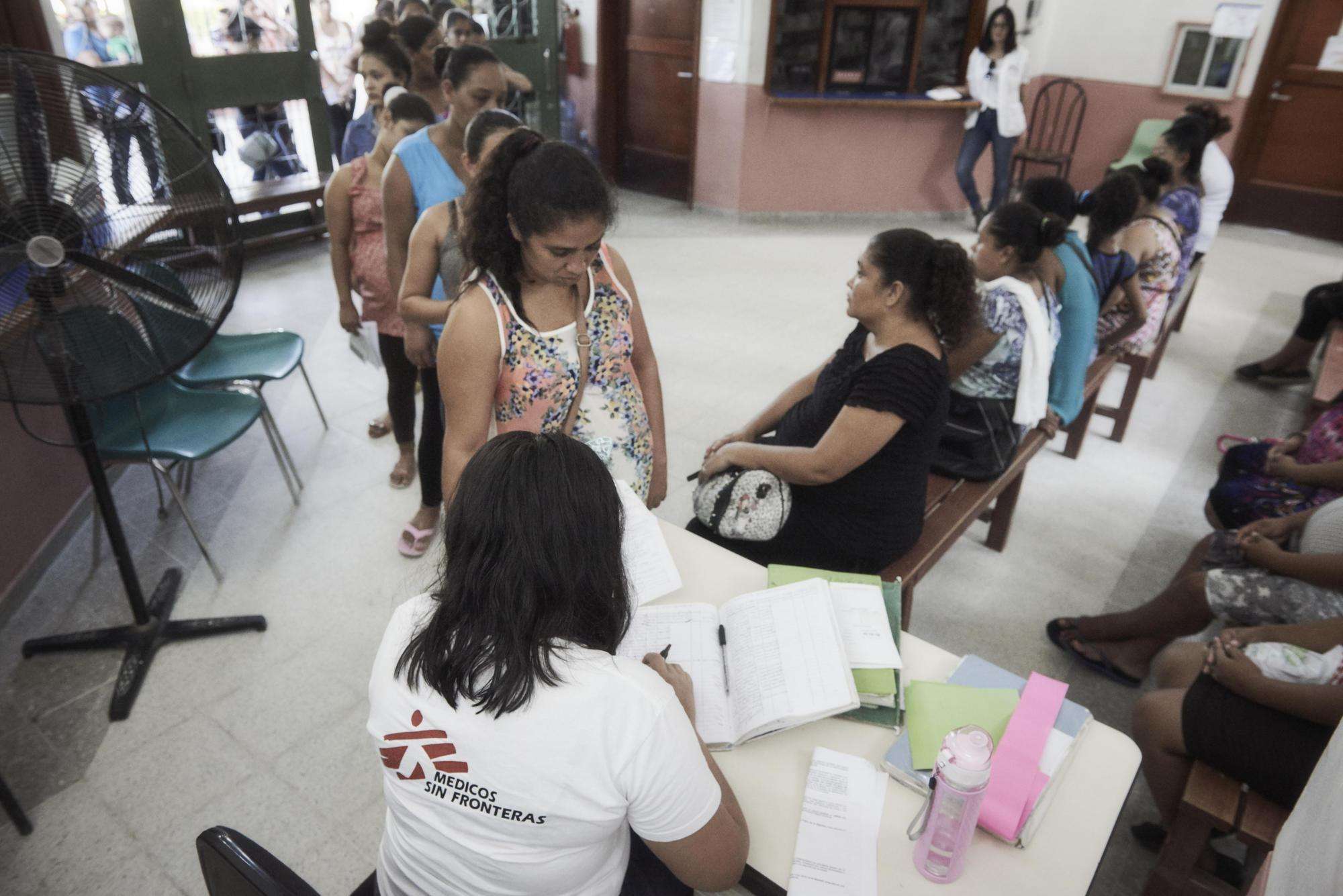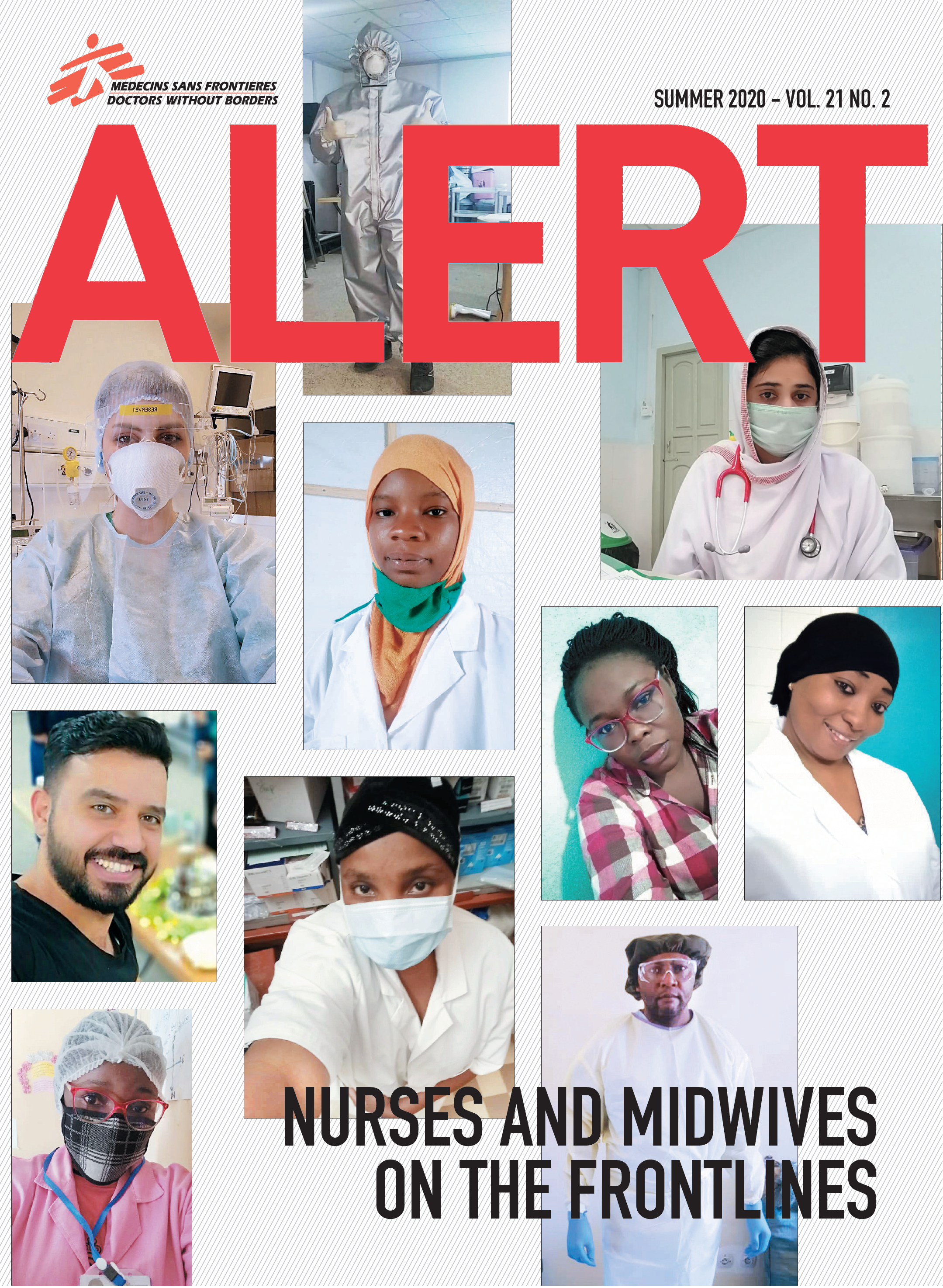“If you think about times of crisis—whether it’s disease, displacement, or conflict—women and girls are often disproportionately affected,” says Eva De Plecker, a midwife and head of the Doctors Without Borders/Médecins Sans Frontières (MSF) working group on reproductive health and sexual violence. MSF teams on the ground are seeing that the COVID-19 pandemic is no exception.
“While we are still learning about COVID-19 and how pregnancy may be affected by the virus,” De Plecker says, “experience from past epidemics such as Ebola has shown that the shutdown of services unrelated to the outbreak resulted in more deaths than the disease itself.”
Today, the secondary effects of COVID-19 threaten the health and lives of women and girls everywhere in the world, especially in places that already struggled to meet their health needs. Many public health systems are overwhelmed, and face tough choices about which services they can afford to provide. “I fear that routine reproductive health and sexual violence services are not being sustained—that they are less prioritized,” says De Plecker, “and that women and girls will not find the care they need."
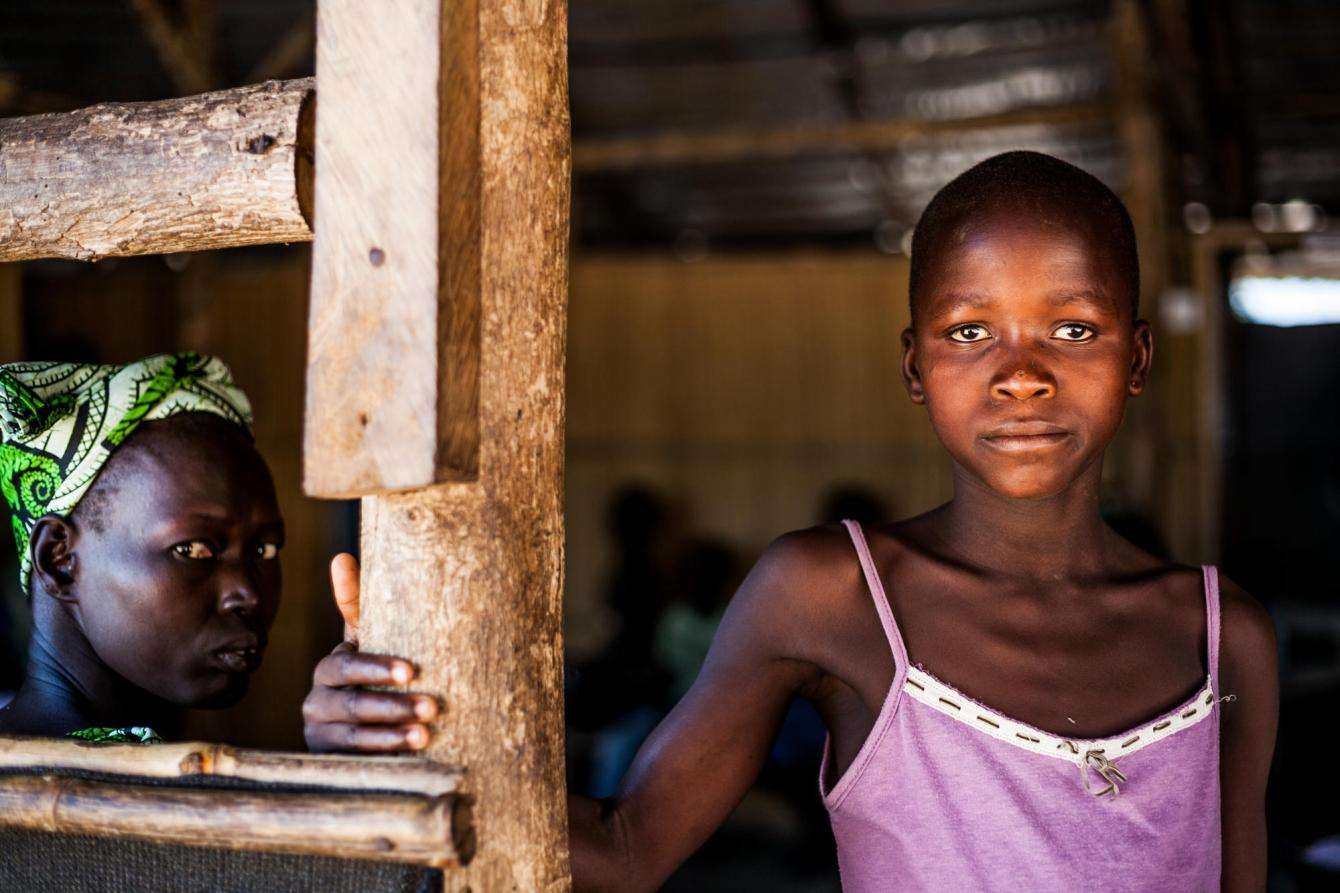
Meanwhile, the United States government is using its leverage to block the inclusion of sexual and reproductive health care in the coordinated international humanitarian response to the coronavirus pandemic. As the largest source of global public health funding, the US has outsized influence on the programs and services provided in other countries.
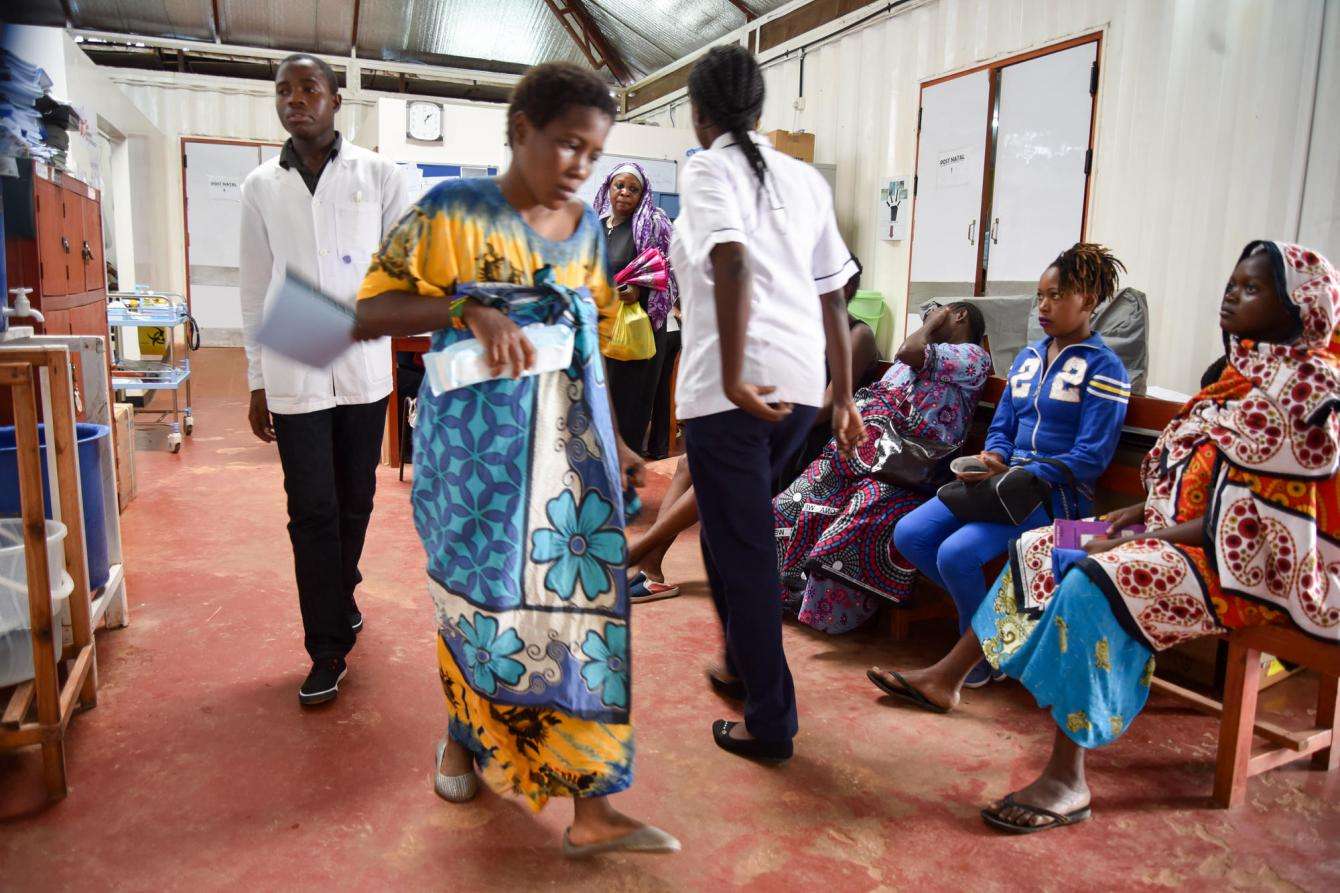
MSF is deeply concerned about the interruption of sexual and reproductive health programs, and the impact this could have on efforts to reduce the number of maternal deaths. Frontline health providers are already reporting shutdowns of services as a result of COVID-19. We know that even a small reduction in services can cause a dramatic increase in maternal and neonatal deaths, a devasting lack of services for survivors of sexual violence, and an increase in the life-threatening consequences of unsafe abortions. Sexual and reproductive health care is essential, lifesaving health care.
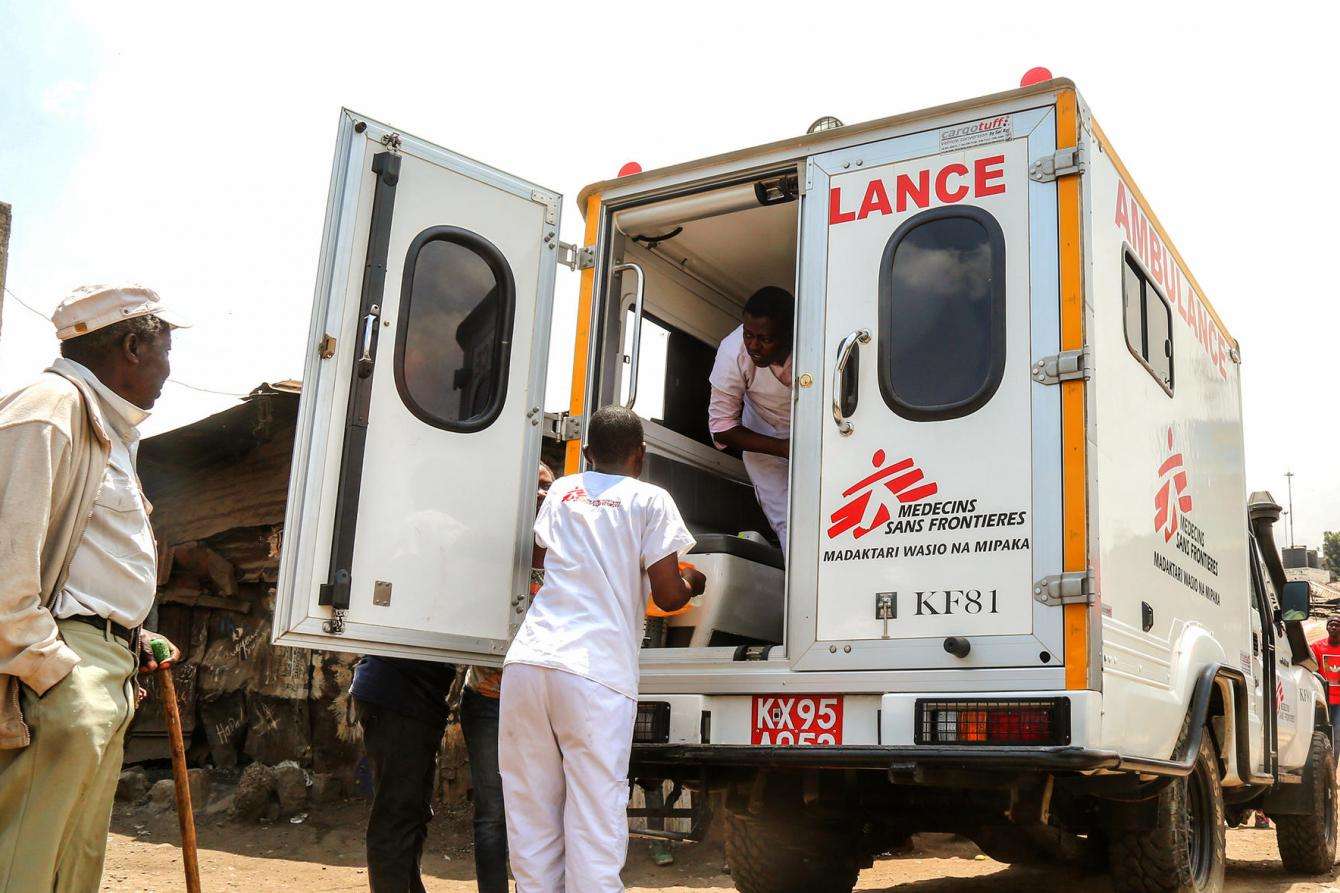
Barriers to care and growing needs
In many of the countries where we work, medical services have been disrupted by COVID-19, with health staff, facilities, and other resources being diverted to the pandemic response or otherwise unable to function. In our own projects we see two extremes—in some locations teams are responding to an increase in patients as other health facilities are no longer available, while other MSF projects report a worrying decline in patient numbers due to various factors.
In some places, we’re seeing the deprioritization of safe abortion care. In Rustenberg, South Africa, some facilities suspended safe abortion care services early in the pandemic. MSF worked with the local authorities to re-open those services, emphasizing that safe abortion care is indeed essential health care and extremely time-sensitive. These services help prevent unsafe abortion, one of the main causes of maternal mortality.
Logistically, just getting to a facility for care has been a major obstacle for women. Public transportation was halted in many places and strict curfews have banned vehicles from traveling at night.
Experience from previous epidemics has shown that the level of sexual violence and intimate partner violence tends to increase during an emergency, and there have been reports of increased sexual violence in countries most affected by COVID-19. De Plecker is concerned that these victims could be stuck in lockdown, often in small living spaces, with their attackers.
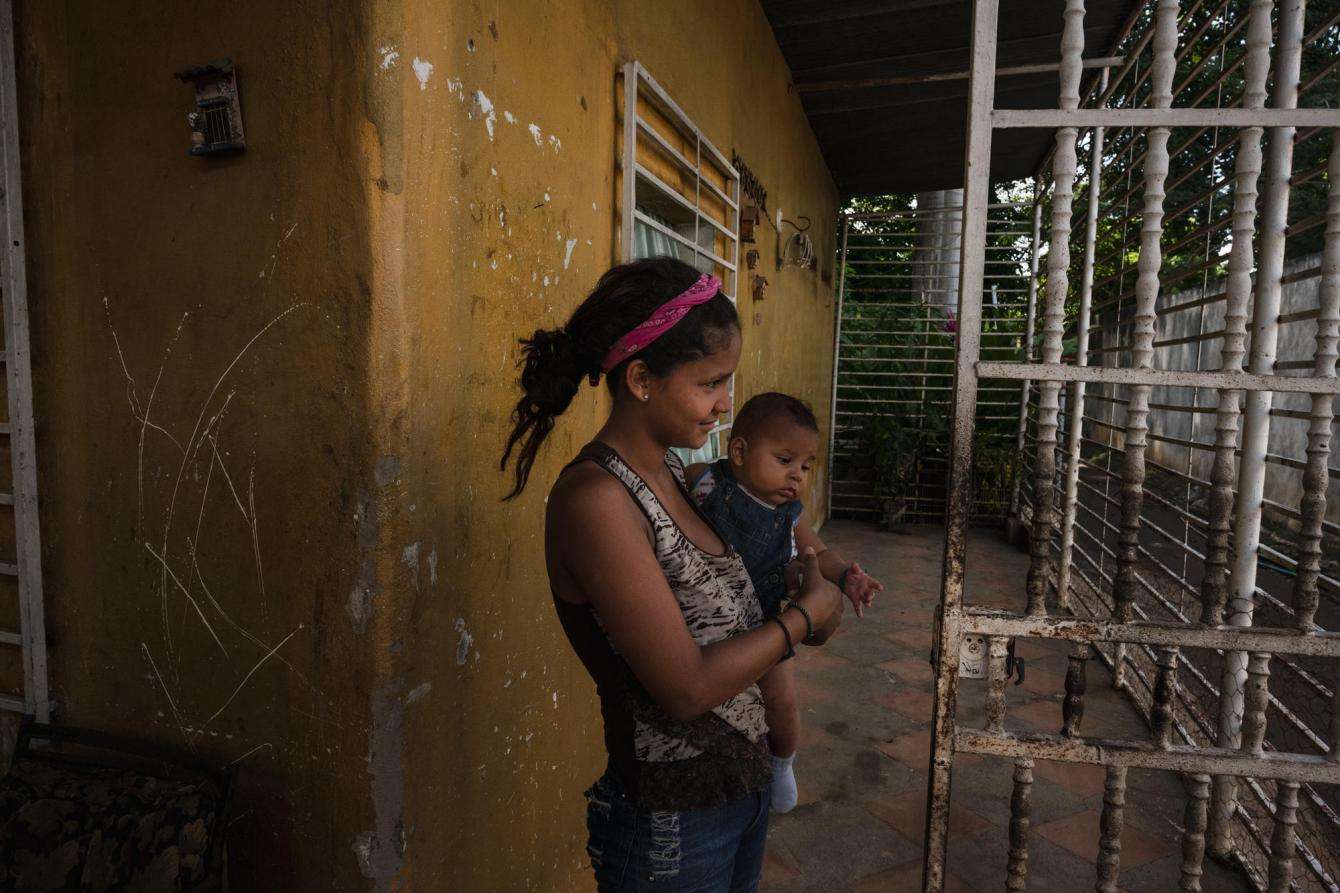
“People who were already in vulnerable situations, now, because of quarantine measures, have no access to the normal social support systems to get help.” Medical and psychological care for sexual violence can be difficult to access in normal times due to stigma, fear of retribution, or a lack of trust in authorities. And it’s extremely time-sensitive. In order to prevent HIV and unwanted pregnancy, women must have timely access to post-exposure prophylaxis (PEP) and emergency contraceptive treatment.
Fear of COVID-19 is also a barrier to care. Some women experiencing complications during delivery could delay going to a hospital until it is too late. “Being in quarantine may influence patients' health-seeking behavior, they may fear accessing health services [during a pandemic],” says De Plecker. “The consequences can be catastrophic.”
Maintaining essential services
There is no lack of challenges to MSF’s running sexual and reproductive health activities during the pandemic. Travel restrictions have prevented many staff positions from being filled at our projects— including midwife positions. Some staff have been infected with the virus and are unable to work. Infection prevention and control measures mean patients cannot gather at our health facilities, forcing projects to change the way they function. Health promotion teams, so important to communicating accurate information about how and where to receive health services, might not be able to speak to large groups of people in the communities. And patients are having major difficulties just getting to us. However, MSF teams are doubling down to make sure we can deliver essential sexual and reproductive health care, while taking into account safety and accessibility.
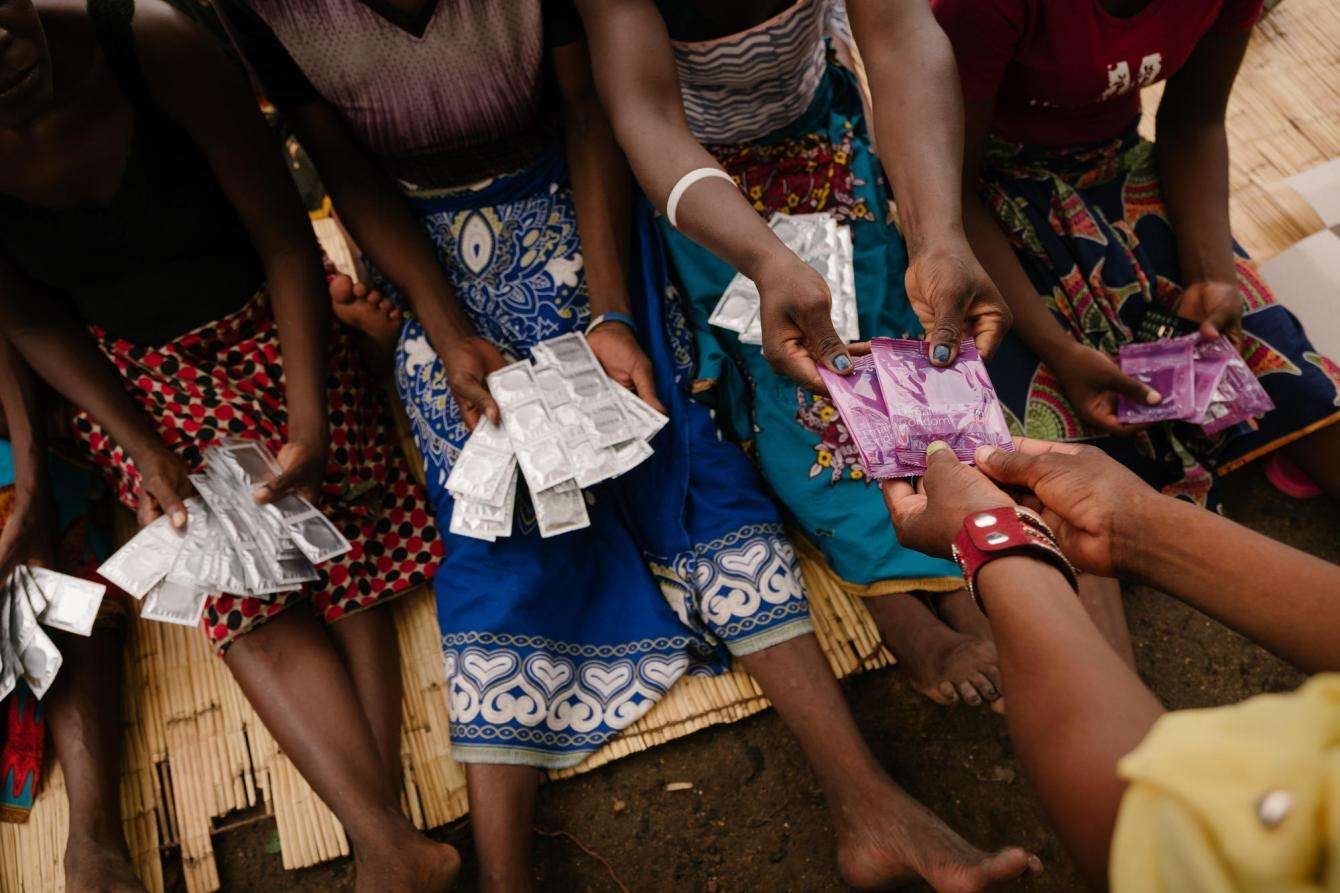
MSF’s top priorities are services with the biggest impact on maternal mortality and those that are time-sensitive. “These are services that cannot be postponed,” explains De Plecker, and which must be continued with the appropriate safety measures: emergency obstetric and newborn care, safe abortion care, treatment for unsafe abortions, contraception, and sexual violence care.
Implementing safety measures means having to rethink how we provide these services. For example, providing safe deliveries now means adding space and barriers between beds or creating separate wards when possible for women with and without suspected cases of COVID-19. In our safe abortion care project in South Africa, women need to make an appointment before coming in. Also in South Africa, MSF continues to run its transport service for victims of sexual violence; from 9:00 a.m. to 5:00 p.m. women who call for care are picked up and brought to the facility for treatment, then dropped off. There has been difficulty with follow-up phone calls, however, because people trapped at home with an abuser are often too afraid to speak.

To ensure that women have access to birth control, MSF projects are advised to provide larger quantities of contraceptives so patients don’t have to come back to get refills every month. Other projects are finding ways for women to get free contraception closer to where they live, either working with pharmacies or referring patients to facilities closer to them.
The second priority services are those that must be continued but can be modified: antenatal care (ANC) and postnatal care. “Normally at an MSF project there might be 100 women or more coming for their ANC appointments on one day,” De Plecker says. Since this is now impossible, these appointments could be spread out over the week, or a triage system might be implemented where staff will only see women face to face if they have complications. At one project in Colombia, most patients live a great distance from the hospital and now have limited access to transportation. MSF doctors there have regular calls with pregnant patients to check on their progress and advise them whether or not they need to come in.
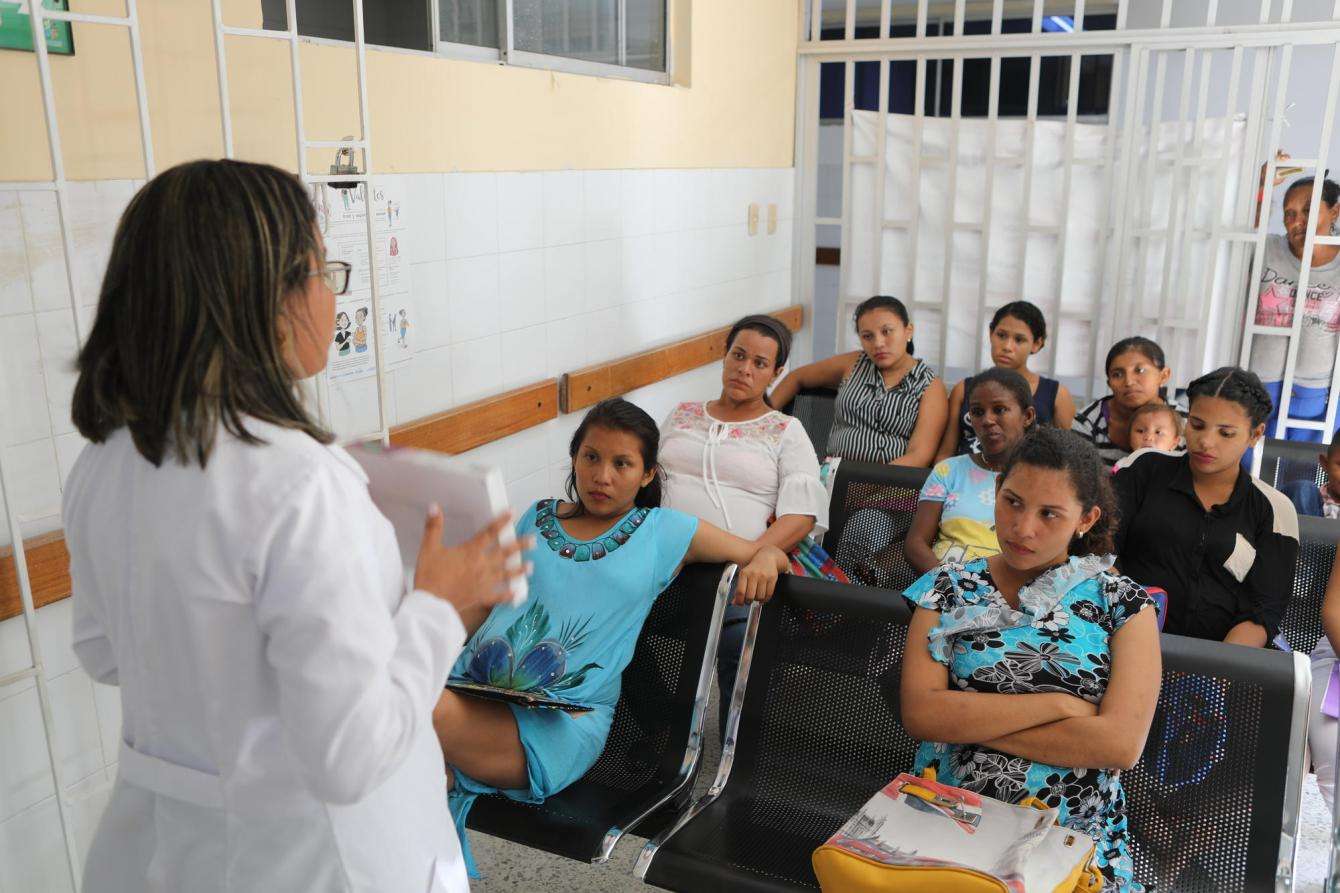
COVID-19 forces adaptation and innovation
“If we can say something positive about this disease,” De Plecker says, “it’s that COVID-19 created a unique opportunity for MSF to invest more in innovative approaches to offer sexual and reproductive health care services, adapted to patients’ needs.”
As safe abortion care can be safely and effectively supported via self-care and community-based models, more MSF projects have adapted their services accordingly. Some projects offer self-managed medication abortion, which can be done at home, with support from sources such as hotlines, digital platforms, and peer educators.
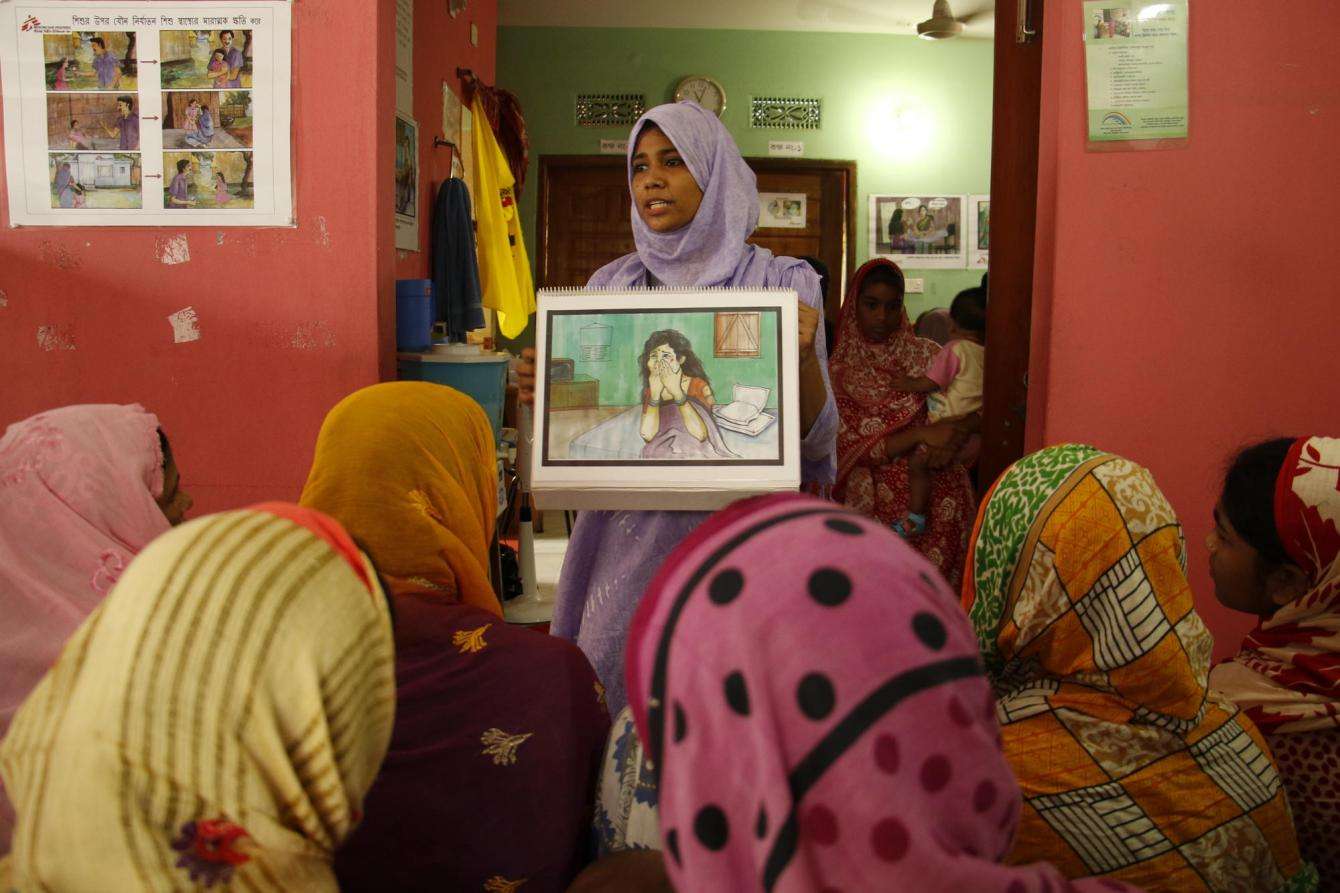
MSF is also finding ways to continue to provide care for victims of sexual violence, including by offering free transportation services amid the lockdowns and through telehealth counseling.
De Plecker notes that the pandemic has highlighted the critical role played by locally hired MSF staff, who make up some 90 percent of our workforce. “We are so proud and lucky to have our national midwives in the field. We cannot imagine what would have happened without their presence,” she says. Teams are adapting to meet the growing challenges. “They have been strong fighters to ensure that sexual and reproductive health services are not deprioritized, and that women and girls have access to these essential and lifesaving services.”
>> Read more from Alert Summer 2020: Nurses and midwives on the frontlines.
